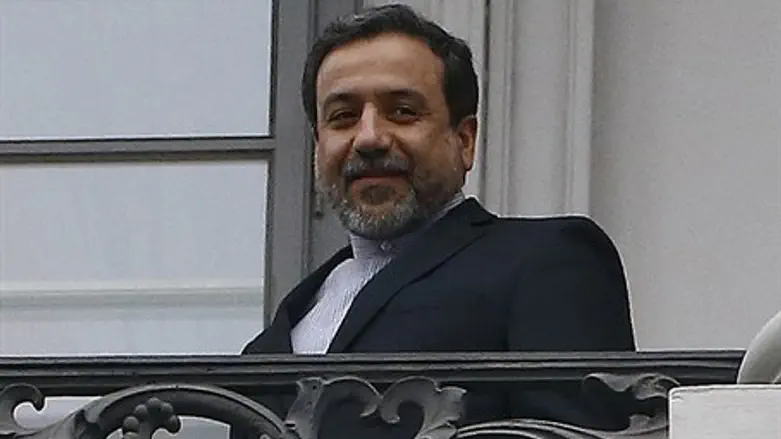
A senior Iranian official has placed another roadblock in the UN’s atomic energy agency attempts to inspect his country’s nuclear sites, The Washington Free Beacon reports.
According to the website, Iran’s deputy foreign minister Abbas Araqchi declared on Monday that international nuclear inspectors from the International Atomic Energy Agency (IAEA) would only be permitted into the country once they receive approval from the Islamic Republic’s Intelligence Ministry.
Araqchi, who also served as one of Iran’s top negotiators in talks that led to the recently inked nuclear deal, was quoted as having told the country’s state-controlled press that Iran’s intelligence apparatus must approve of any inspector who is issued a visa to enter Iran.
This requirement could complicate efforts to prove to the world that Iran is being fully transparent and that nuclear inspectors inside the country are neutral.
Iran has already stated that no American inspector would be permitted into the country under the deal. The accord also grants Iran a 24-day notice period before inspectors enter any site suspected of being used for nuclear weapons work.
“Any individual, out of IAEA’s Inspection group, who is not approved by the Islamic Republic of Iran cannot enter the country as the agency’s inspector,” Araqchi was quoted as telling the Islamic Consultative Assembly News Agency (ICANA), a government news outlet, according to TheFree Beacon.
This type of screening is fully permitted under the nuclear accord, Araqchi said.
The deal “has been set within the framework of the additional protocol and all limitations and supervisions are within the protocol and not beyond that,” he added.
The IAEA suspects Iran carried out research at least until 2003 on developing nuclear weapons.
The agency relaunched its probe two years ago by asking for information on less sensitive work related to nuclear arms allegedly carried out by Iran, with hopes of moving to larger issues later.
However, the IAEA has continuously reported little progress in its attempts to probe the allegations against Iran, and Amano recently said that the agency had limited progress in its inquiry into possible military dimensions of Iran's nuclear activities.
The agency now has an agreement in place with Iran which is linked with the deal signed with the West. Details of that agreement have not been made known, however, and Iran has objected to making those details available to the United States Senate, claiming the agreement is “secret”.
Iranian Supreme Leader Ayatollah Ali Khamenei's top foreign affairs adviser revealed recently that despite the nuclear deal sealed with world powers, international inspectors will not be allowed to visit Iran's covert military sites that are said to house its secret nuclear weapons program.
His statement raises concerns even higher over the complete absence of covert nuclear installations in the Iran deal, prime among them the Parchin military base where Iran has admitted to testing exploding bridge wire nuclear detonators.
Khamenei himself also affirmed on Monday that there is no way for the United States to “infiltrate” Iran under the deal.
The “Americans seek to make an excuse to infiltrate Iran through a [nuclear] deal whose fate and whether it will be rejected or approved is not yet certain either in Iran or the U.S.,” Khamenei was quoted as saying on Monday.
“With all our strong capabilities, we will not allow Americans’ economic, political or cultural infiltration or political presence in Iran,” he added.
